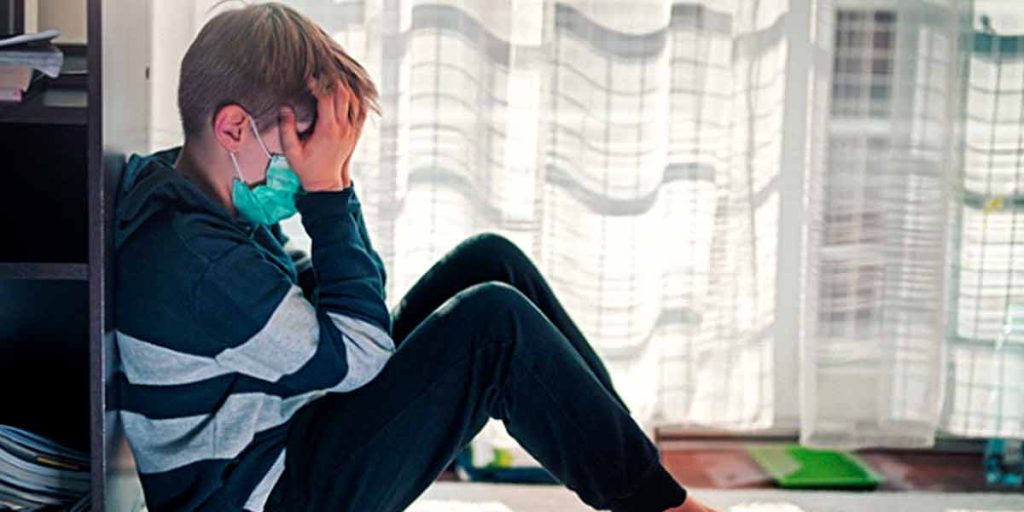For so many persons, the pandemic shut down made their world smaller and narrow with the restrictions and limitations that came alongside with it and everything being focused on COVID-19. As such, the mental health of children and young adults is being challenged greatly like never before. The effect of the pandemic on the mental health of these youths is unequal, as it happens to take a toll on the most vulnerable, like transgender, bisexual, lesbian, gay, queer & questioning (LGBTQ) children.
The persistent feelings of sadness and hopelessness is more reported amongst transgender, bisexual, gay and lesbian unlike in other youths who are heterosexual according to the National Alliance for Mental Illness. Meanwhile, they stated that Transgender youth face additional challenges such as depressive symptoms, considerations and attempts of suicide compared to the gender lesbian, gay, bisexual, queer and questioning youth. Unstable environment and crisis such as the COVID-19 pandemic are culprits found to increase these risks. The pandemic has increased the patterns of social withdrawal and violence in LGBTQ persons.
During the pandemic shut down, the United Nations (UN) Independent Expert on Sexual Orientation and Gender Identity called on UN member states and other stakeholders to ensure that government responses to COVID-19 are free from violence and discrimination. The Independent Expert released the ASPIRE Guidelines to assist the government in achieving the target. The guidelines consist of measures elected officials can take to ensure the LGBTQ youths are not discriminated rather, ensures equitable protection throughout the pandemic.
Collaborations with the Massachusetts Transgender Health Coalition on guidelines for health care providers caring for transgender and gender queer patients were made to reach attorneys across New England to provide resources to ensure the parents of LGBTQ have the authority to make legal decision in case a parent becomes ill or die.
Attorneys also worked with the criminal justice reform for the release of imprisoned young adults whose lives were at high risk of illness and death as a result of the institutionalized settings in which they live. Family law and estate planning attorneys across New England beyond seeking resources and legal information receives calls from the LGBTQ community when faced with mistreatment and discrimination, which is increased in the midst of the global pandemic.
The on going global health crisis has made obvious and more consequential the gaps and differences in our social structures. Our concerns for our health and safety and that of our loved ones, family and friends daily makes us anxious and irritable. However, law firms and attorneys keep working to ensure the LGBTQ community do not face more mistreatment and discrimination coupled with the ongoing crisis.
Not just attorneys and law firms, but UNICEF USA as well as the American Academy of Pediatrics and American Psychiatric Association is against the marginalization and stigmatization of LGBTQ youth for the sake of the mental well-being of these young adults. They assert that any law that targets children based on their sexual orientation or gender identity and expression encourages discrimination, stigmatization and mistreatment of the children and adolescents and that such discrimination can lead to poor outcomes in their education and physical and mental health.
According to UNICEF, during this COVID-19 response and recovery, everyone has a role to play in advocating for mental health services for all young people and proactively engaging groups that are mistreated in the process to ensure a happy and healthy childhood, free from discrimination and safe from harm. Like the human rights activists and attorneys, UNICEF advocates for the rights of LGBTQ children and adolescents to grow up free from discrimination, stigma and violence.
FAQ:
1. What is Queer advocacy?
It is the advocacy for members of the community who are lesbian, gay, bisexual, pansexual, transgender, intersex, asexual, aromatic, queer, or questioning.
2. What difference does the pandemic make to Queer advocacy?
The pandemic heightened the patterns of social withdrawal and violence in LGBTQ persons who are already vulnerable.
3. What is LGBTQ?
It is an acronym that stands for lesbian, gay, bisexual, transgender and queer
4. Who advocates for the Queer community?
Human rights activists, attorneys, and different organizations like UNICEF, United Nations (UN) Independent Expert on Sexual Orientation and Gender Identity and others lend their voice for Queer advocacy.









